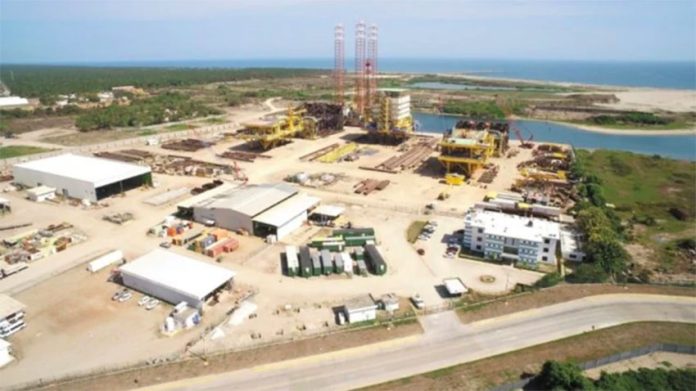The slump in the value of the peso against the United States dollar could significantly increase the cost of building the new Pemex oil refinery on the Tabasco coast, according to calculations by the newspaper El Financiero.
The federal government announced last May that the Dos Bocas refinery project would cost no more than US $8 billion. The exchange rate at the time was approximately 19.3 pesos to the dollar, meaning that the price of the project would be 154.4 billion pesos.
However, one US dollar was worth 23.8 pesos on Tuesday, El Financiero said, meaning that building the refinery could cost 190.4 billion pesos, an increase of 36 billion pesos, or 23.3%. Most contracts for work on the project are likely to be in dollars.
The government, which announced in May that it had scrapped the bidding process to find a builder for the new refinery and that Pemex and the Energy Ministry would take charge of the project instead, could well end up paying even more.
Many analysts have said that the government’s $8-billion estimate for the refinery is too low, pointing out that similar projects have cost $12-$14 billion. Many have also expressed skepticism that the government can keep its promise to build the project in three years.
While the peso price of the project looks set to increase, the capacity of the refinery – expected to process 340,000 barrel per day of Mexico’s flagship heavy crude – to recoup the investment looks to be under threat due to dropping oil prices.
The price of Mexico’s export crude plunged to $10.37 per barrel on Monday, its lowest level in 21 years, before recovering slightly to $10.76 at the close of trading on Tuesday. As the coronavirus pandemic worsens and demand for oil remains low, crude prices are predicted to decline even further.
Even before oil prices started to plummet, many experts questioned the government’s decision to invest in a new refinery, arguing that it will only divert funds from Pemex’s more profitable exploration business.
President López Obrador, however, has championed the project in the name of sovereignty, asserting that it will help to reduce Mexico’s reliance on fuel imports and contribute to greater economic prosperity in the country’s southeast.
Source: El Financiero (sp)
